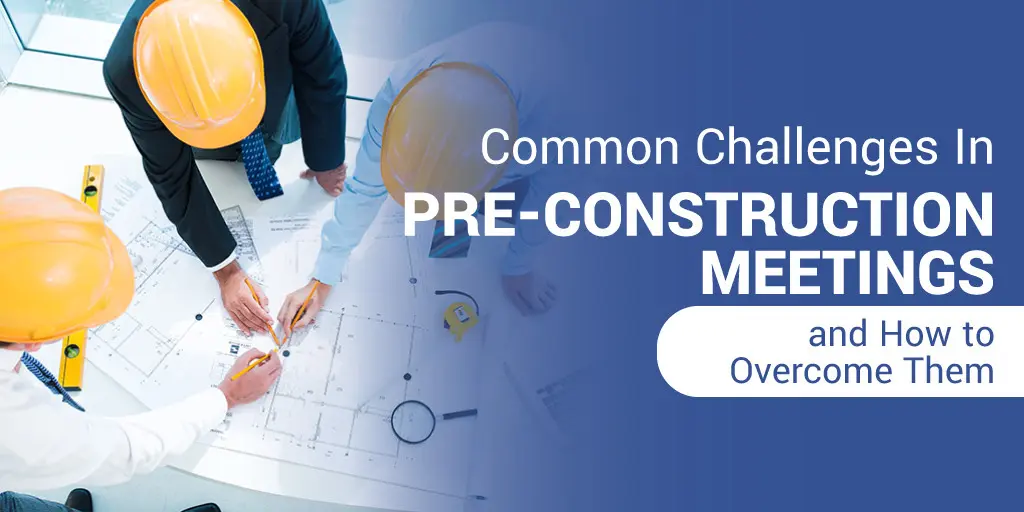
How Do I Know When I Am Working With a Good General Contractor?
With the complexity of the construction industry and the reputation that it often brings, it is no wonder that people want to know if you are working with a good general contractor or not. Too often professionals in skilled trades can talk circles around you in a fog of uneasy-sounding intelligence, when really, they are not performing. They use fancy words to get out of answering your real questions. Paired with the fact that there is so much riding on your construction project, both economically and health and safety wise, you need to find the right general contractor for you. A good general contractor:
1. Offers Accountability
2. Demonstrates Ownership
3. Brings Experience
4. Gives Value
A Good General Contractor Offers Accountability:
A contractor who welcomes accountability with the owner of the project is a rarity. Because you hire a general contractor to do the things you cannot, he or she will often wish to be left alone and never questioned. His or her skill is in construction and yours is not, right? And he shouldn’t have to answer to you because of his or her expertise, right? Wrong. Very wrong. The owner/customer is justified in questioning the contractor, even if he or she is a lightweight in construction knowledge, especially in this case. Do not let the experience of a contractor scare you off from requiring accountability.
Contractors who proactively offer it to begin with are a step ahead in customer relationship. You should look for those kinds of contractors to do business with.
How do you offer accountability?
1. Systems and processes:
Often construction management software has a client login that allows the owner to view site images, logs, issues, submittals, RFIs, and project communication. If your contractor does not allow you to look behind the curtain, it is time to abandon ship.
2. Openness:
Does your general contractor give straight answers to you? Can you even get a hold of him or her? Do your questions go unanswered even though you are the one writing the checks? Again, this is time to look for a replacement without openness
3. Responsiveness
Paired with openness, how responsive is your general contractor? Are you the bottom of his or her priority list? Does he or she merely “get around” to your concerns, or are those important issues you bring up something that is addressed quickly?
4. Transparency in decisions
Does your general contractor inform you of important decisions in the process? Decisions are being made constantly on the site and in the project management office. Are you privy to them? Or do you merely hear about them after the fact when they go south?
5. Transparency in billing
Does your general contractor tell you what he or she is making? The fact is that you can request this at the outset before signing contracts. Of course, a general contractor should be making money to do the work; that’s the only way he or she can be in business. But too many general contractors hide finances, fees, and mark up to avoid being transparent in billing. A worker is worth his or her wage, but it is very important to know that wage beforehand.
6. Constant inspection
One bright luminary of leadership said, “Inspect what you expect.” Are you actively looking out for your project and interests? If the general contractor does not make time for you to inspect the site, then you can be sure he or she is not looking out for your interests, but rather their own. Safety and quality are so important that one cannot leave it up to the people doing the work to sign off on their own work.
7. Condescension
Does your contractor speak in ways you understand? A contractor should not be too important to talk in plain English to you about the questions you have. In some ways, “condescension” has taken on bad implications and connotations. But it need not be so. A contractor who can condescend can take the complex information of a project and distill it into understandable communication for everyone involved. The more knowledge you have as an owner, the more power you have for a better project.
A Good General Contractor Demonstrate Ownership:
If all the general contractor wants to do is to get paid and finish the work, then bid him or her adieu. The turn and burn philosophy is no way to build a lasting relationship.
Your general contractor should take ownership alongside you on a project. Ultimately the project and result is yours, but until we turn over the keys, it is fully ours. And this is a good thing: we ought to take your project as our own.
The Rental Car Procedure
Have you ever rented a car? You have no problem parking up close near to other cars, complete with door dings. Speed bumps? No problem, didn’t even see them (or slow down for them).
This is simply because rental cars are not owned by the operator. There is no ownership here.
But, on the other hand, watch how an owner deals with his or her car: Park way out in the parking lot to avoid scratches and door dings. Wash the car every day. Do not allow the kids to have a drink inside of it. Take speed bumps at a sloth’s pace. Avoid the freeway for fear of getting into a wreck. Yes, ownership means you treat something different, as your own. That is the goal for any project and general contractor who manages one.
Does your general contractor demonstrate responsibility?
Yes, the subcontractor’s concrete was poorly done, but ultimately it was done on the general contractor’s watch. That means he or she is liable for allowing it. Is he or she taking responsibility to make it right?
Is the general contractor going to see the project through to completion or does he or she plan on bolting once the progress payments are done? Can you get him or her back to the site to fix problems?
Commitment and responsibility are very much absent these days.
But a good general contractor can put those things back into your project as we take ownership. Now everything that happens on site is our responsibility. No one is allowed near your project without authorization. We will not allow a single person to work on site without being vetted as a skilled and reliable worker or subcontractor. None of the materials are good enough until we say they are. And if anything goes wrong on the site, we will make it right, even issuing various lengths of warranty to make sure the project is right.
This is the difference that ownership can make.
A Good General Contractor Brings Experience:
It almost goes without saying that your general contractor must bring experience to the project. There is no room for novices on a construction site; it is that important. But how do you know beforehand that your general contractor of choice really is worthwhile?
1. Check reviews online.
2. Ask around with suppliers and subcontractors.
3. Request a work history and completed project references.
The best predictor of today’s weather? Yesterday. The same principle applies in construction. The best way to get to know someone’s experience is to see how satisfied his or her previous customers are. That is because you are about to become one.
This all has to do with project reputation.
But even more, your general contractor needs to bring project expertise. He or she needs to be well versed in his or her field. This means years of accomplishments and satisfied customers. This means in-depth research of his or her trade, knowing specifications and guidelines. It means professionalism in his or her staff with multiple certifications, licensure, and competencies. This means doing the hard work and producing successfully. Nothing can replace that kind of experience and expertise.
A Good General Contractor Gives Value:
A general contractor is only as good as the value he or she brings to your project. Yes, general contractors carry a fee for their services, but they can save you so much more in the following ways:
1. Time saved
2. Headaches reduced
3. Quality protected
4. Safety ensured
5. Liability mitigated
6. Bundling of trades into one
Time Saved
A good general contractor can do all six things above at the same time. As an expert, the general contractor can move your project forward more quickly than you can for various reasons: 1. He or she is dedicating time to it where you cannot. 2. The expertise he or she carries is won from years of experience and hard-won know how that prevents issues from arising later. 3. He or she can see the whole project at once and discover where the time savings will be, either crashing the schedule, scheduling multiple trades at once, managing a phased project, and finding the issues before they become one.
Headache Reduction
Headache reduction means that you, as the customer, get to sit back and let someone else take on the grind of construction. Dealing with contracts, motivating performance, watching for quality and safety, all these things must be constantly monitored. Do you have the time to watch all of this and still do what you do best? Likely not.
Quality Protected
Quality is something that requires a seasoned eye. It takes know how to see when someone is trying to cut corners or pull the wool over your eyes. A general contractor becomes your enforcer and agent for change on the entire project.
Safety Ensured
A lack of safety can be the largest headache you will ever experience. There is nothing worse than injury or fatality on a construction job site. Not only does it slow down your project, add untold cost to it, but it also is an awful thing to have to bear on your conscience as well as on your site. Who is going to ensure that safety was followed, that all workers comply, and that everyone on the site has qualifications to be there? If you are like most customers, it is likely not you who has the time to do that.
Liability Mitigated
Paired with safety is the fact that liability is everywhere on a job site. One cannot be too careful when watching for problems that could arise. Whose responsibility was it that the concrete wall now has cracks in it? Who is going to pay for the replacement of low-grade foundational dirt that the dirt guy slipped past you? When you have a general contractor watching for these things, that they conform to your standards, it is his or her problem. You have no need to worry about the added cost or issues in construction. The general contractor, if he or she is doing work rightly, will be on top of this to protect you and your site. This is just a small example of the liability that the general contractor shoulders for your project.
Bundling of Trades into One
To bundle is to save. Every business knows this: if the customer offers more revenue, purchases more, lumps in more services with a single company, there are many ways to get discounts and savings. Startup costs are expensive. Just getting someone to the site will cost you. Why not get the maximum savings out of the project by bundling all trades together into one value-driven whole? The general contractor can require savings for you and your project by the following ways as an example:
1. Order extra material for both the sitework and the plumber (who must fill his PVC trenches with rock anyway). This is opposed to two subcontractors ordering separate rock orders of the same kind, both with 15 – 20% mark up to your project.
2. Schedule multiple trades at once: the plumber can work at the same time as the concrete team if you work in concert and coordinate them well. The drywall and painters can work in close unity to move your project quickly in a phased way.
3. The general contractor can collapse requirements into a single subcontractor who has multiple competencies, something that is not always obvious to you, the customer.
4. The general contractor can procure materials needed even during the design phase simply because he or she is a part of both design and construction. This is the best way to bundle and save; and it keeps your project as an integrated whole. How much more is quality-filled will your project be when the contractor both designs and constructs it, knowing that later he or she will be responsible for all phases in handing it off to the customer?
How do I know when I am working with a good general contractor?
He or she will offer accountability, demonstrate ownership, bring experience, and give value to your project. If you are not working with someone who can do all four of these things, it is time to move on. Let Constructable help move your project to completion and bring our expertise to bear on the most important of projects: yours. Click HERE to get into touch with us.




